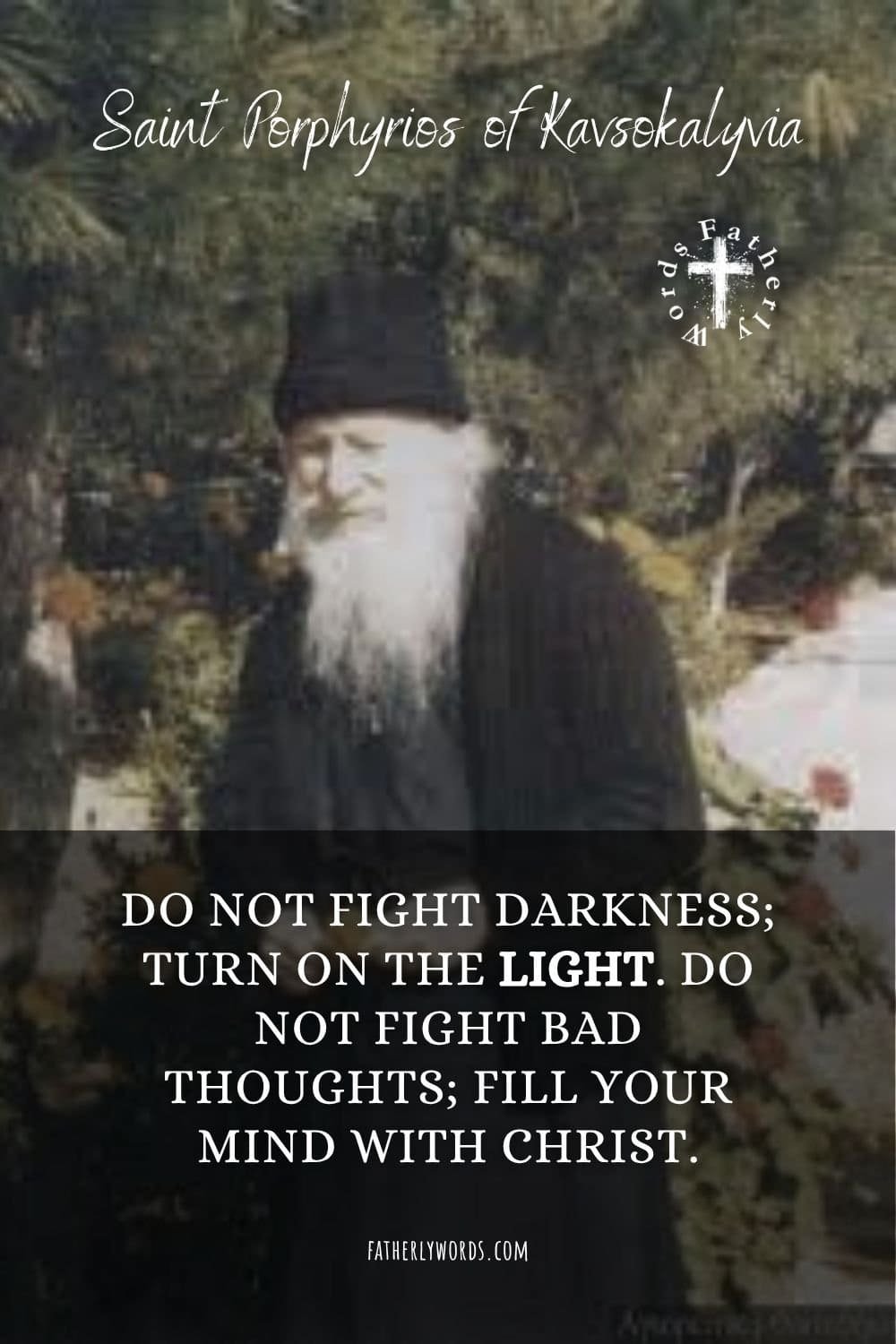The experience of slander is one of the most painful trials in the spiritual life. It wounds not only a person’s reputation, but also their heart, tempting them to despair, anger, and self-defense.
Yet for the Orthodox Christian, even this injustice can become a road to holiness when met with humility, forgiveness, and trust in the Providence of God.
Elder Justin Pârvu, one of the great spiritual fathers of modern Orthodoxy, endured slander and persecution for his unwavering confession of the Christian faith. His life and words offer a profound guide to every believer struggling with the pain of false accusation.
Born in 1919 in Romania, Elder Justin was imprisoned for sixteen years under the communist regime because he refused to betray Christ and the Church.
He was tortured, humiliated, and falsely condemned, yet he emerged with a radiant heart filled with love and mercy toward his persecutors. His teaching on slander is not philosophical. It is born of lived experience.
When They Slander You
“When they slander you,” said Elder Justin, “they put a label on you that you cannot take off. Even in the future, someone may remind you of that label unjustly placed upon you. But do not despair. Remember that this was the will of God.”
Slander is not merely a social injury; it is a spiritual assault. It seeks to bury the truth under lies and to provoke the heart to anger. Yet the Elder reminds us that even slander can become a divine lesson if accepted in the spirit of faith.
Just as Christ was falsely accused, mocked, and condemned, so too will His followers face false words. The Apostle Peter warns:
“If you are reproached for the name of Christ, blessed are you, for the Spirit of glory and of God rests upon you”
1 Peter 4:14
To be slandered unjustly is to share, in a small way, in the sufferings of Christ. The true Christian does not seek revenge or public justification, but entrusts his good name to God.
“Do not be overcome by evil,” writes Saint Paul, “but overcome evil with good”
Romans 12:21
The Hidden Providence of God in Every Injustice
Elder Justin’s first counsel is to remember that every trial, even slander, is allowed by God for the purification of the soul.
“Do not despair,” he said. “Remember that this was the will of God.”
This is not a call to fatalism but to trust. The Elder knew from experience that divine providence can use even the lies of men for our sanctification.
Saint John Chrysostom, who himself was exiled by slanderous accusations, wrote:
“Let us not be distressed when we are unjustly accused. The more we are slandered, the more we are crowned.”
The slandered person stands before God as a silent confessor. His suffering can become an offering of humility—a sacrifice of the will, of pride, and of reputation.
God allows injustice not to crush us, but to reveal whether our faith rests on human praise or on divine truth.

Be Careful Whom You Trust: Wolves in Sheep’s Clothing
Elder Justin also warned about misplaced trust: “Be careful whom you trust. Many are wolves in sheep’s clothing. Do not listen only to sweet words, but look at how they live.”
The world is filled with charming voices that promise comfort, success, and acceptance. Yet spiritual discernment is not based on words, but on fruits.
“You will know them by their fruits,” said the Lord
Matthew 7:16
In the prisons of Romania, the Elder met people who betrayed their faith for a promise of freedom. The authorities told him he could go free if he denied Christ. He refused. “They offered me the freedom of the body,” he said, “but it would have cost me the freedom of the soul.”
Freedom without truth is slavery. The one who follows Christ must learn not to trust appearances, but to look at the works and spirit of a person. The Christian life is proven not in speeches, but in humility, sacrifice, and love.
Forget the Evil Done to You
“You must forget the evil done to you,” Elder Justin taught.
“Evil that remains in your thoughts grows in the mind and poisons the soul. What you must remember is your need for salvation.”
To forget the wrongs of others is not weakness. It is spiritual strength.
When we keep a record of offenses, we nourish anger and bitterness. But when we release them into God’s hands, we free the soul from the tyranny of the past.
Saint Isaac the Syrian wrote:
“The remembrance of wrongs is the daughter of pride. Forgiveness is the mother of peace.”
The Elder’s words echo the Gospel commandment:
“Forgive, and you will be forgiven”
Luke 6:37
To forgive the slanderer is to imitate Christ on the Cross, who prayed for His executioners:
“Father, forgive them, for they know not what they do.”

The Heart: The Battlefield of Good and Evil
“The heart,” said Elder Justin, “is the battlefield between good and evil. There true freedom is experienced. The heart sustains the existence of man. It is where Heaven and Earth meet.”
The struggle against slander is not fought with words but within the heart. If the heart remains pure, the lie cannot destroy it.
In the heart, the Christian must guard the peace that comes from Christ.
“Keep your heart with all diligence,” writes the Book of Proverbs, “for out of it flow the issues of life”
Proverbs 4:23
When slandered, the mind seeks revenge, but the heart, illumined by grace, seeks peace. True freedom lies not in vindicating oneself before men, but in remaining free from hatred.
What Is True Freedom?
Elder Justin warned:
“Freedom does not mean we can do whatever we want. In fact, many times by doing whatever we want, we are doing the will of the devil. True freedom is revealed in discernment—in the ability to choose between good and evil.”
Modern society preaches freedom without responsibility, pleasure without repentance, and self-expression without truth. Yet this false freedom enslaves the soul.
True Christian freedom is the freedom of the heart that has conquered passions and self-will. It is the freedom of one who can love his enemy and bless those who curse him.
Saint Maximus the Confessor wrote:
“He who loves God truly is free. For he no longer fears anything nor desires anything apart from God.”

How to Help the Lost
“To help a person trapped in the modern way of life,” said the Elder, “we must extend our hand. We must love him and pray for him. Christians must be fellow travelers toward the Kingdom of Heaven—loving and helping one another.”
This teaching transforms how we view those who harm us. Instead of seeing the slanderer as an enemy, we can see him as a suffering soul in need of prayer.
The Christian does not attack evil with evil, but with compassion.
Saint Silouan the Athonite said:
“The man who does not love his enemies has not yet known God.”
When we pray for those who slander us, the poison leaves our heart. The other may not change, but we are healed.
The True Victor
“The victor,” Elder Justin said, “is not the one who wins, but the one who knows how to endure. He is the one who has learned not only to forgive his enemies but to love them.”
In this world, victory is measured by success, power, and reputation. In the Kingdom of God, victory is measured by humility, patience, and love.
The Christian who endures injustice with peace and continues to love is already victorious, because he imitates Christ.
“For this is the victory that overcomes the world—our faith”
1 John 5:4
Saint Paisios of Mount Athos once said:
“When others wrong us, and we endure silently, God builds us a golden palace in heaven.”
Elder Justin lived this truth to the end. After his repose in 2013, more than 100,000 faithful came to venerate his body, which remained warm and flexible—a testimony of divine grace.
Christianity Is Sacrifice
“Christianity,” said Elder Justin, “is sacrifice. Through fasting and prayer, man ascends to Heaven. We must follow the example of Christ, who took upon Himself the sins of all humanity.”
He added: “We should not stone our neighbor—not with our deeds, nor even with our thoughts. Instead, we must consider ourselves guilty for the faults of others. We must bear the weaknesses of our brother to bring him relief. This sacrifice for our brother is greatly loved by God.”
Here lies the essence of the Orthodox Christian life. To carry the burden of another, even when that burden is injustice, is to participate in the Cross of Christ.
Saint Paul taught:
“Bear one another’s burdens, and so fulfill the law of Christ”
Galatians 6:2
The one who bears the pain of slander without resentment joins Christ in His redemptive suffering for the world.

The Psalm of Trust
The Elder’s life echoes the words of the 36th Psalm, a hymn to patience and trust in God’s justice:
“Do not envy those who do evil, nor be jealous of those who commit lawlessness. Submit yourself to the Lord and entreat Him. Do not envy the man who prospers in his way, who commits iniquities.”
Psalm 36:1,7 LXX
The psalm reminds us that evil is temporary. The truth will shine in God’s time, not ours. The righteous man’s peace comes from his confidence in the Lord, not in the judgment of men.
The Orthodox Way Through Slander
Elder Justin Pârvu teaches that slander can become a ladder to heaven. Every false word, every betrayal, every wound can be transformed into prayer and humility.
The Christian response is not to argue, justify, or curse—but to forgive, endure, and love. By doing this, we preserve our heart’s freedom and become true disciples of Christ.
Injustice reveals the depth of our faith. It shows whether we love God for His glory or for our comfort. Those who endure slander in silence, with a peaceful heart, become living icons of Christ.
Explanation for Children
Sometimes people say things about us that aren’t true, and it hurts very much. Elder Justin Pârvu said that when this happens, we shouldn’t get angry or sad, but remember that God knows the truth.
If someone lies about us, we can pray for them and forgive them, just like Jesus forgave the people who hurt Him. When we do that, our hearts stay full of peace, and God is very happy with us.